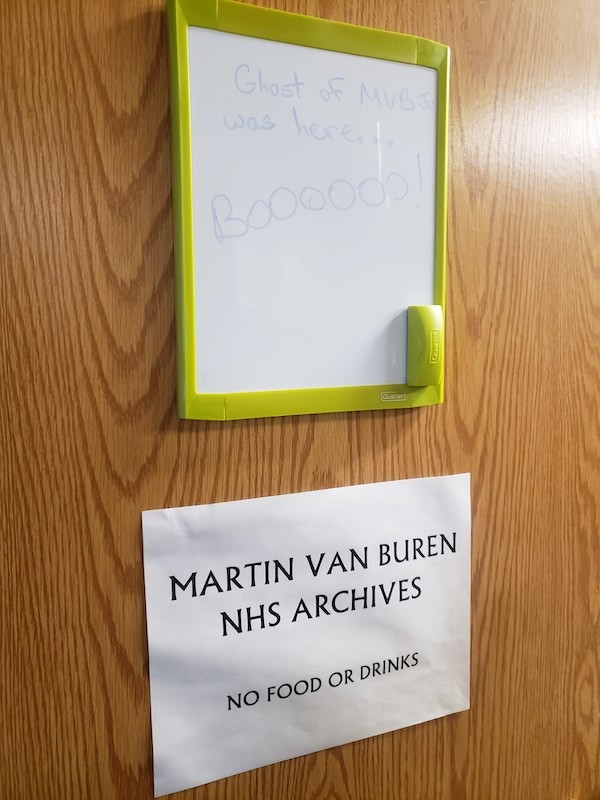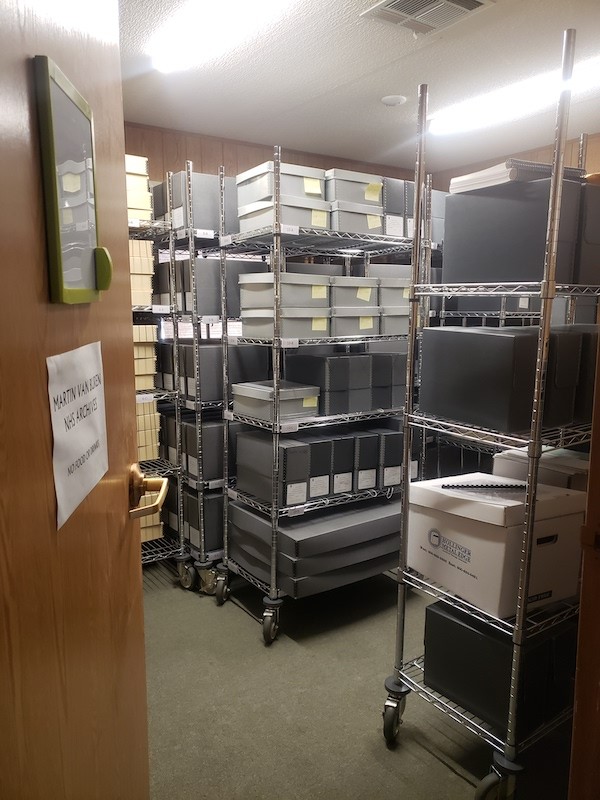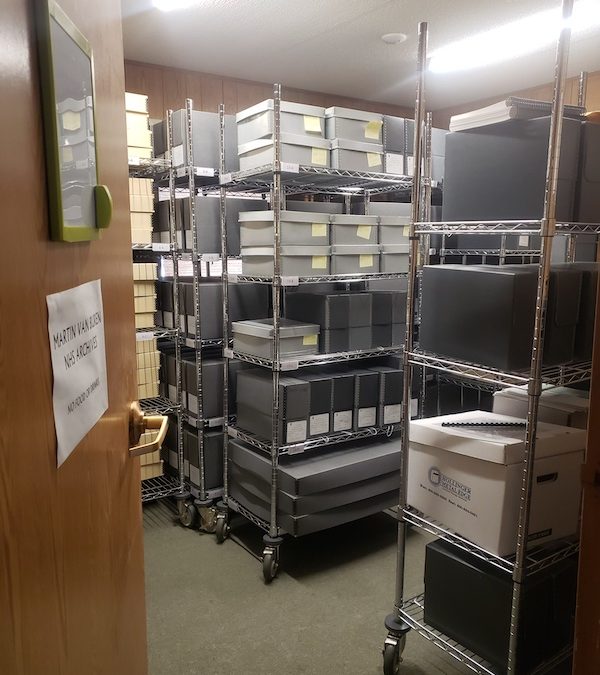Records are the Backbone of Cultural Stewardship
Written by: Christina DadyEsposito
How strange to realize that my internship is one-quarter of the way through! The last three weeks at Martin van Buren National Historic Site have sped right past me… all while I have remained seated.
But don’t worry! I haven’t been slacking! I’ve been delving into that mysterious, murky, and muddy world of Federal. Records. Dun.. dun.. dunn. Just kidding, it’s not that scary. Confusing and misunderstood and by design/nature complicated? Yes.
In a similarly misunderstood way, archives are thought of as mysterious and secretive vaults. Commonly dreamed of as neglected attics with a flickering bulb or state-of-the-art restricted access rooms with motion sensored lights (as in the 2019 Captain Marvel movie). And somehow the document someone is looking for saves the day.


What records and archives are, in a less dramatic but vital way, are structure. One of my professors called archives the heart of a democratic system. I like to think of it more as the skeleton.
We have all had experiences in workplaces or at home where frustrations build around not being able to find something or re-doing work because you can’t figure out how it was done the first time. Records, the archives they evolve into, and information organization impact daily life as much as they hold the history and cultural memories of the past.
The footer on every page of the National Park Service Director’s Order 11D reads: “Resources cannot be managed in the future without complete records of how they were managed in the past”. (And yes, I did read every page of this DO and many more in the past three weeks.) Here at MAVA I have been able to see the complexities and realities of that statement. Because while the resources cannot be managed without complete records, records aren’t useful if they also aren’t managed.
The first thing Liz Banks, a senior archivist for Region 1 based in Boston, MA said to me when I reached out to her was that NPS, as a federal agency, is one of the worst in terms of best practice record keeping. I was a bit taken aback by such honesty and it led to a very thoughtful conversation regarding the nature of the records NPS has.
Unlike other institutions and perhaps other agencies, the records NPS creates and uses in their daily business will always, at some point, need to be referenced or used again. They aren’t just records of government activity, but records that inform future park service employees as they work to “preserve unimpaired the natural and cultural resources and values of the National Park System” (NPS Mission statement). In the case of NPS the archives are themselves a resource to be managed AND a resource for management AND a record of institutional history.
The work I am doing this summer is an attempt to bridge the gaps between these three points. Make the site archives accessible and usable to the staff here at MAVA. I won’t be working on 19th century letters or juicy historical stuff and I freely admit that the things I work on are a bit dull and hard to jazz up for photos or blog posts. I mean, how exciting is the Servicewide Records Schedule if you aren’t an information organization geek? (I find it fascinating btw so I guess I am in the right field).
MAVA became a site in 1974 and has fifty years of resource management records tucked into the site archive. There are some 70 boxes of unprocessed materials and another five shelving units that have been processed but need revamped finding aid tools. With old federal records systems to understand, NPS archival standards to learn, and processing procedures to master I am plenty busy.
Archives find of the week: A cover letter from the Superintendent on a draft of a Historic Grounds Report that places a bet on the report never being finished. They wagered 25 dollars.
“Let us save what remains: not by vaults and locks which fence them from the public eye and use in consigning them to the waste of time, but by such a multiplication of copies, as shall place them beyond the reach of accident.”
― Thomas Jefferson
Interested in learning more about American Conservation Experience, including our programs – Conservation Crew and Emerging Professionals in Conservation? If so, click here to check out our resources, media, and to apply online.
